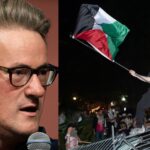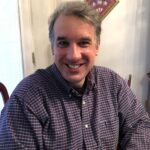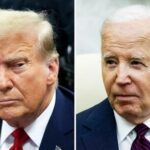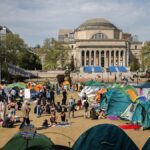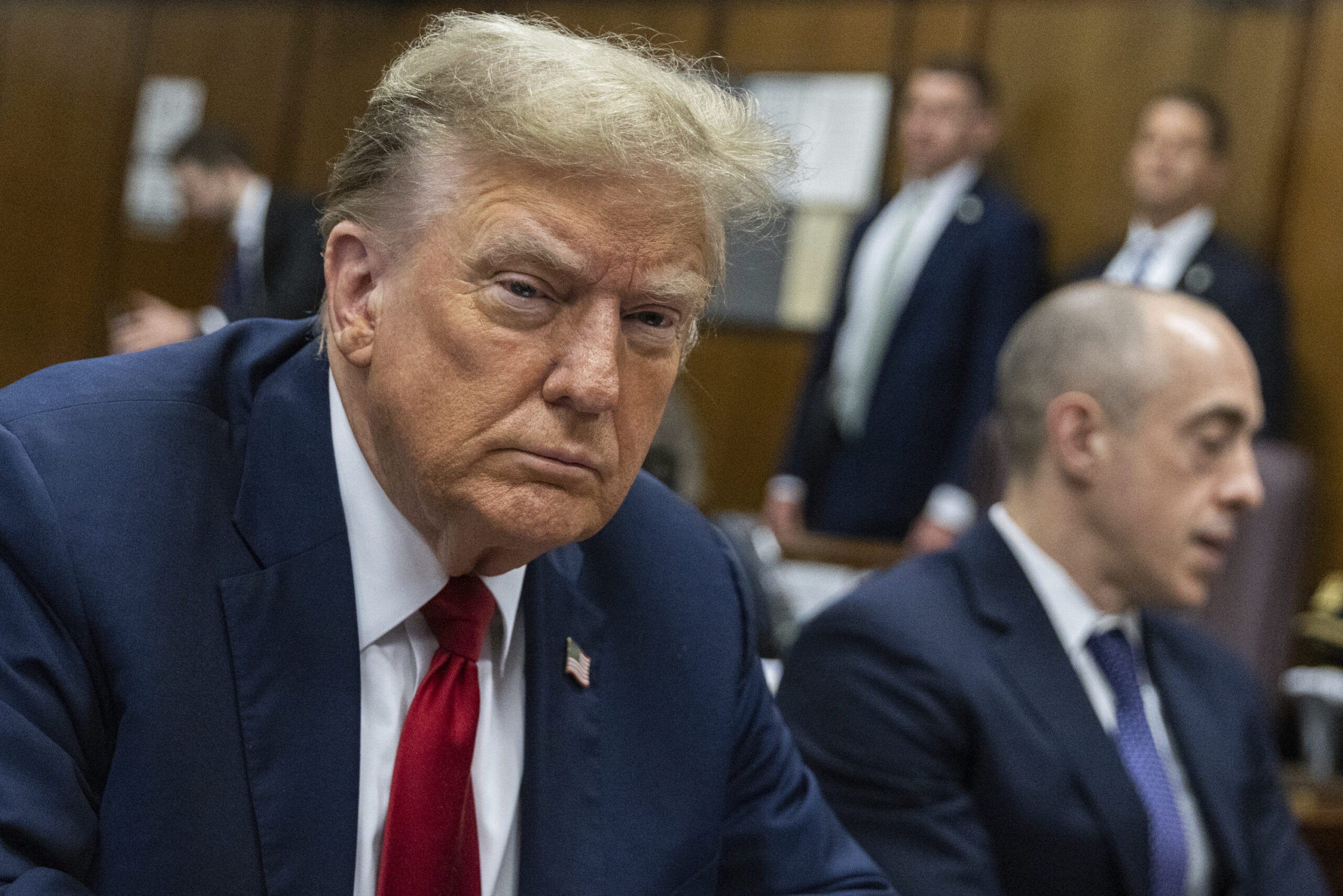

A New York judge vetted nearly a hundred prospective jurors in former President Donald Trump‘s hush money trial on Monday, but more than half of them were excused because they said they lacked impartiality.
The first day of the first-ever criminal trial of a former president ended with 32 prospective jurors left as Judge Juan Merchan, defense attorneys, and prosecutors continued the process of whittling down a pool of randomly selected Manhattan-area residents to serve on a 12-seat bench.
Trump and Manhattan District Attorney Alvin Bragg, who has charged the former president with falsifying business records after his 2016 election, were both present, according to a pool of six reporters inside the courtroom. Trump’s presence is required every day for the trial, which is expected to last roughly until the end of May.
The prospective jurors in the case underwent an initial questioning phase that will extend into Tuesday that involves them answering a set of predetermined questions, such as where they read their news, whether they listen to podcasts, and if they support extremist groups such as QAnon or antifa.
Merchan first introduced the case to 96 prospective jurors as Trump sat in the courtroom listening. When the judge asked if any felt they could not be a fair juror, more than 50 raised their hand and were excused. Another handful were excused for other reasons, and then those who remained began answering one by one from the questionnaire.
The judge excused a Harlem woman who answered “yes” during the questionnaire session when asked if she had “any strong opinions or firmly held beliefs about former President Donald Trump or the fact that he is a current candidate for president that would interfere with your ability to be a fair and impartial juror.”
Merchan kept one man, an Upper West Side resident of 23 years, who volunteered that he felt “nobody is above the law, whether it be a former president or a sitting president or a janitor.”
Jury selection could last days or weeks, but the first day underscored the difficulty in finding 12 residents of New York City who lacked strong feelings about the former president and presumptive Republican presidential nominee.
Once prospective jurors have answered the questionnaire, the process becomes tougher as defense attorneys and prosecutors will be able to raise challenges about the prospective jurors who are left and request that the judge dismiss ones they believe are not suited to hear Trump’s case.
Tuesday is expected to be largely dedicated to jury selection, while Monday morning was taken up by outstanding pre-trial questions that Merchan had reserved for the first day of the trial.
Merchan denied prosecutors’ request to use as evidence sexual misconduct allegations against Trump that surfaced in the aftermath of the infamous Access Hollywood tape in 2016. The judge also reiterated that he would not permit prosecutors to use the actual tape, in which Trump made a lewd remark about women, but said he would allow them to use words from the tape and other details about it.
Merchan also ruled that evidence that the National Enquirer ran positive stories about Trump to help his 2016 campaign could be used as evidence, despite objections from Trump’s attorney that they “would do nothing but confuse the jury about the actual crime charged,” according to the New York Times.
Lastly, Merchan scheduled a hearing for next week to hear arguments from prosecutors that Trump violated a gag order Merchan imposed on him and that the former president should be sanctioned with contempt and fines. They cited a social media post in which Trump called expected witness Michael Cohen his “SleazeBag former attorney.”
The gag order restricts Trump from speaking about witnesses, prosecutors, and court staff in the case.
CLICK HERE TO READ MORE FROM THE WASHINGTON EXAMINER
Trump can, however, speak generally about the case, and at the beginning and end of the first day of jury selection, he did just that by blasting it as a politically motivated “persecution.”
“This is about election interference. That’s all it’s about,” Trump said.


